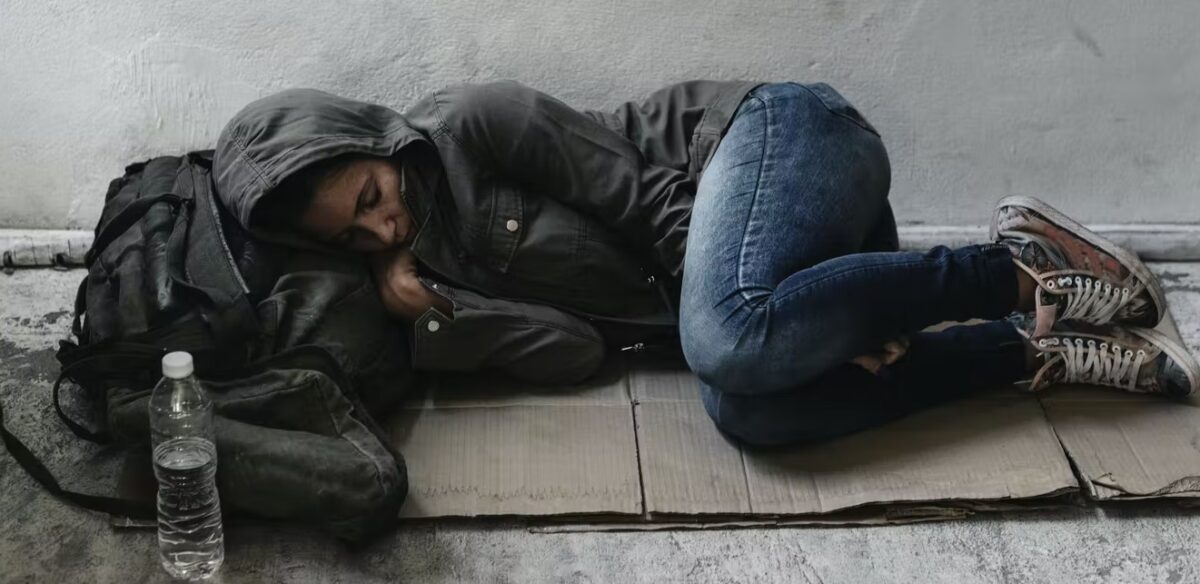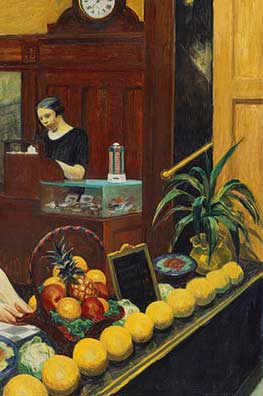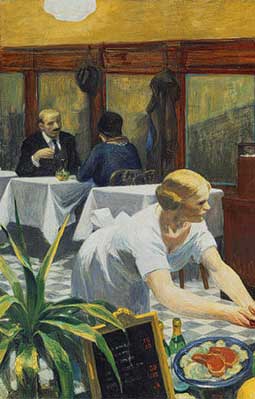This happened just before the pandemic.
I met her as I was heading to a bar after hitting quite a few other ones. Needless to say, I didn’t make it to the other bar. She was in her early thirties. Her dark hair flowed down her shoulders in a tangled and confused mess. She wore several layers of mismatched clothing and she moved in the somewhat jerky and protective manner of someone who was accustomed to being hurt and demeaned on a daily basis. Occasional winces. A thin arm that often popped up to protect herself even as she made a valiant good faith attempt to connect. I could tell that she was someone who had been very open with people before she had fallen on hard times. Her limpid eyes singled me out and she seemed to see a tenderhearted light in me. She said hello. I said hello back. And we talked.
She sang me a song, one she had written, and she had a beautiful voice. She told me that she had been homeless for months and that she didn’t have any place to sleep. She told me a few things about herself and she seemed to me a pretty decent and severely hurt soul. She told me that she was very hungry. So I took her to a bodega to buy her a hero. She had been in New York for a few months and she had stayed on the streets the entire time, but nobody had bought her a hero before. She was clearly unfamiliar with how sandwiches worked in Brooklyn bodegas. She thought that I was buying her a gyro and she asked for sprouts. The guy at the bodega, seeing her and me, gave me a wink and a thumbs up. And that creepy assumptive gesture really pissed me off. Because I had no designs. The only thing I wanted to do was to help her. Probably because I was lost myself.
I could smell her pungent odor. So I said, “Would you like a shower?” I told her that I had some leftover shampoo because I had just shaved off my latest beard and she could use the shampoo to clean her hair. She said that she trusted me and we went to my apartment. I made sure she had a fresh bar of soap. I made sure she had a fresh towel and luckily I had a brand new toothbrush for her to use. Then she finished cleaning herself up and got dressed and opened the door and emerged from the bathroom and I offered her a beer and she jumped on me and tried kissing me with an almost animalistic instinct, the kind of thing you do when you really need to survive. I gently pushed her away. She offered me sex in exchange for crashing at my pad and, when I was making my bed up for her, she tried to go down on me and she tried to move my hand on her body. And I stopped her and I said, “No, that won’t be necessary. Please. I’m not that kind of man. You can stay here tonight unconditionally.”
I did, however, record her singing. Because when she first walked into my apartment, she saw one of my microphones mounted high in the main room and she wanted to sing. But she didn’t have a phone. And she didn’t have an email address. And so I have this recording of her singing that I’m not going to share with anyone and, I suppose, if she ever contacts me again, I can give it to her. Then I made sure she was comfortable in my bed while I crashed on the couch.
I only got bits and pieces of her story, but I learned enough about her to know that pretty much every other man she’d met had used her and that the quid pro quo she had offered me was pretty much par for the course. And I hated myself for not being able to do more for her. But at the very least, I could treat her with dignity and make sure she was fed and showered and had a MetroCard with a few rides on it. She declined my offer of breakfast.
She said that I was a very cool person. And I told her that I wasn’t that cool. I asked if she had gone to a shelter and she said that she had, but that it hadn’t worked out. I did my best to urge her to call her family, offering my phone. But she declined. I asked her what she’d be doing that day. She said that she’d be spending the day wandering around Times Square. And it broke my heart. But at least I could help her for one night and treat her with a kind of respect she didn’t usually receive. I asked her if she wanted one of my books. Something to read while she tried to survive another day. And she slipped my copy of Lorrie Moore’s Who Will Run the Frog Hospital? under her coat — largely because she thought the idea of a “frog hospital” was very funny. When I escorted her to the subway station, she told me that she felt it was going to be a very good day. And I really hope it was for her. When we parted ways, I spent some time thinking about her for a while, hoping that she would get back on her feet, wondering if I did enough. But I did the best that I could with what I had.
I was shaken by what happened, in part because there was a time in my life not long ago (and maybe even not far in the future) in which I could have been some version of this woman. And it has me wondering if my sincere efforts at kindness arise in some way from a baleful solipsism. I feel uneasy about chronicling all this because, even in mentioning the facts here, I fear that I have painted myself as a hero. But I’m far from a hero. I’m just a wildly flawed human being.
That morning, I got a call from my incredibly sweet and deeply spiritual friend. She has an uncanny instinct for checking in on me at the right moments. And I apparently possess the same timing with her. I told her what happened. We got to talking about how so many people who mete out benevolent gestures towards the marginalized are besmirched. My wise friend reminded me that there have been many saints in human history who have been inexplicably belittled and badmouthed. One can look no further than Hippolytus’s castigation of Pope Callixtus I. Pope Callixtus I, an incredible bishop who is justly celebrated by the Catholic Church, was condemned because he extended absolution and forgiveness to those who had committed sexual transgressions. He was upbraided simply for having the stones and the instinct to be merciful. I certainly do not consider myself to be a saint and I am often not sure if I am a good person, although I certainly try to be. In chronicling the details, at least as I perceived the situation, I am wondering if I am not acknowledging my faults or even fully reckoning with my privilege. Could I have stopped the woman from kissing me faster? Yes, but I was extremely surprised and very tired and thus slightly delayed in my response. Could I have done more for her? Maybe, but I had just paid off a huge bill. The one thing I knew that night was that I had the ability to help someone and that I couldn’t bear the thought of this woman sleeping on the streets. How many times has any New Yorker passed by one of the countless thousands of people who need our help, not once considering their perspective? Is my good act diminished by other actions in which I have kept my head down on the subway when someone has asked me for help? Am I truly doing enough to help other people when there are other times in which I don’t have the energy for it?
The problem with being kind is that we are inevitably forced into a situation in which our actions are perceived as pious absolutism and further promoted on social media. I think of all the self-aggrandizing TikToks in which people depict their professed acts of kindness for likes and follows. It is the same perceptual problem that we see in those who we deem evil: namely, that evil people are incorrigible monsters who are incapable of change. Both hard archetypes fail to account for the vaster middle ground that all human character is rooted in. Yet we must be good. And that goodness must emerge by unprompted natural instinct.
In Phenomenology of Perception, existentialist philosopher Maurice Merleau-Ponty believed that “living” was defined by what he deemed “circumscribed absences,” which is to say, in plain English, that heartfelt life and everyday behavior both contain certain qualities that can only be understood through the body and by the physical gestures from which we assign and interpret motivation:
The meaning of a gesture thus ‘understood’ is not behind it, it is intermingled with the structure of the world outlined by the gesture…[i]t is arrayed all over the gesture itself — as, in perceptual experience, the significance of the fireplace does not lie beyond the perceptible spectacle, namely the fireplace itself as my eyes and movements discover it in the world.
If Merleau-Ponty is correct, it’s quite possible that what we comprehend as “being kind” can only be interpreted through the structure of the world. But if the structure of the world leaves little room for expressive variation — and during the pandemic, we find our faces covered by masks, our bodies increasingly removed from public space, and we leave far too many in the cold — we seem forever fated to be enmeshed within a structural construct hostile to natural kindness in which we have no control. If the structure of our world is further vitiated by the vicious construct of social media — itself an imperfect representation of tangible experience and palpable reality that rewards self-serving networkers and the savage wolf pack mentality — then the benison of a kind gesture becomes lost in the miasma of blind spots and a failure to grasp human totality — this at a time when we really need to know and feel it most if we hope to solve our numerous social ills. Perhaps the natural instincts of the human heart are too volatile and too foggy for anyone to entirely trust. Perhaps the structure of the world can never be altered, particularly since empathy has been increasingly politicized. The cruelty is the point when the point should be all about the kindness.



 The place pounded bad house music at deafening levels. There was very little light, save for a strip of green neon snaking around the perimeter of the bar. The waitstaff were clad in black, murky figures who sneaked up on tables like highwaymen descending upon a stagecoach. I kept feeling around for my wallet just to be sure.
The place pounded bad house music at deafening levels. There was very little light, save for a strip of green neon snaking around the perimeter of the bar. The waitstaff were clad in black, murky figures who sneaked up on tables like highwaymen descending upon a stagecoach. I kept feeling around for my wallet just to be sure.  I lost interest in the talk of a reality television show I had never watched and began observing a server who reminded me very much of one of the attorneys at the firm I was then toiling at. She had spent a good deal of time perfecting her posture, had carefully kept up her skin, and was in her early thirties. Roughly around the same age. The resemblance was so similar to me that I could imagine her replacing a tray with an attache.
I lost interest in the talk of a reality television show I had never watched and began observing a server who reminded me very much of one of the attorneys at the firm I was then toiling at. She had spent a good deal of time perfecting her posture, had carefully kept up her skin, and was in her early thirties. Roughly around the same age. The resemblance was so similar to me that I could imagine her replacing a tray with an attache.